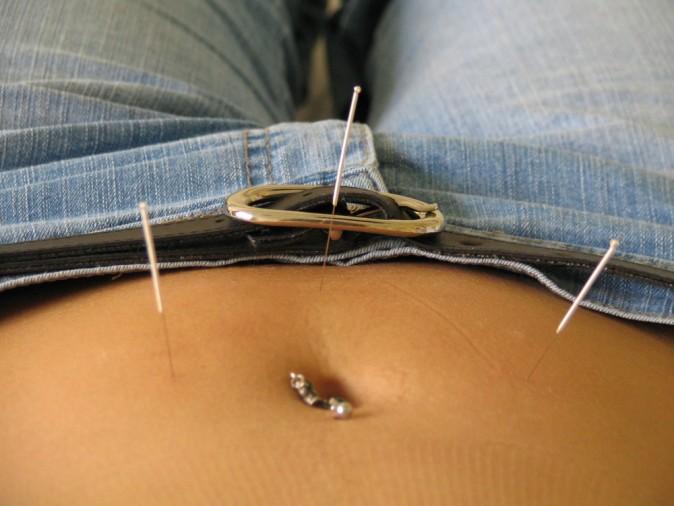Are you dreading “that time of the month”? If so, you are not alone.
Up to 97 percent of women report some form of PMS symptoms, with many of them experiencing moderate to severe symptoms that interfere with work, social and family life, and that need treatment. Five percent to 7 percent of women have such severely debilitating symptoms that PMS causes a major disruption of all aspects of life.
Menstruation-related issues have also been variously linked to psychiatric hospital admissions, child abuse, alcohol abuse, accidents, incidences of suicide, and hospital admissions in general.
Many women find themselves dealing with a host of very uncomfortable physical and emotional symptoms occurring around the time of their periods. Many rely on pain medication or even take birth control pills, although they would rather not.
Symptoms
The symptoms of PMS were mentioned by Hippocrates, although it wasn’t until the 1930s that premenstrual syndrome (PMS) was identified. It is defined as a collection of differing signs and symptoms that occur after ovulation and are relieved at the onset of menses. Symptoms can start 1 to 14 days before menstruation begins, and most often start 7 to 10 days prior. There is usually at least one week after the period that is relatively symptom-free.
A large number of possible causes have been advanced for PMS, including progesterone deficiency, fault in the progesterone receptors, progesterone and estrogen imbalance, vitamin B6 deficiency, and psychosocial or personality disorders. None of these has been widely accepted as a proven cause.
Symptoms usually occur every month or most months, can differ in severity, and often get worse with age. The most common symptoms can be broken down into four main categories:
• Anxiety, irritability, mood swings, and nervous tension
• Depression, insomnia, lethargy, and confusion
• Bloating, headache, weight gain, and breast tenderness
• Increased appetite, cravings for sugar or salt, and fatigue
Other often-reported symptoms include unease, sleepiness, crying spells, loss of concentration, clumsiness or poor coordination, decrease or increase in libido, acne, constipation, diarrhea, and puffiness in the abdomen. Exacerbation of migraines, epilepsy, rhinitis, and asthma can also be related to PMS.
Chinese Medicine’s Approach
In Chinese medicine, every patient is treated as an individual based on the particular symptoms and examination. Three people can come in with the same chief complaint, but the treatments will be tailored to each person.
A Western medical approach will most often treat those three people with the same two or three medications that address the chief complaint.
As an acupuncturist, I believe that the different approach is an important reason that Chinese medicine and acupuncture are so effective for the wide variations in PMS symptoms. Many of my patients have had seemingly unrelated problems diminish and often disappear.
The kidney and liver energetic systems are most often at the root of PMS and its many manifestations.
The kidney energy is at the root of yin and yang in the body, and during the menstrual cycle, proper transition from yin to yang is important for normal ovulation. Thus, a deficiency in kidney energy, can cause problems with your cycle and ovulation. Other signs of deficient kidney energy are fatigue, low back pain, and excessive hair loss.
The liver energy is responsible for the free flow of energy in your system. It is widely understood in Chinese medicine that emotions cause stagnation of liver Qi (energy). Stress eventually leads to stagnation in your liver system and can manifest as PMS. Some common symptoms of deficient liver energy include headaches, breast tenderness, anxiety, irritability, moodiness, and insomnia.
Your First Visit
When you first see an acupuncturist, you should expect to have a consultation and then a complete examination, which includes a history of your health problems and complaints, feeling your pulse and looking at your tongue. This is done to evaluate where the energetic imbalances in your system are, determine the causes of your particular symptoms, and decide on a treatment plan to rebalance your system.
Acupuncture alone can be very effective in treating PMS and other women’s health issues, such as painful periods, infertility, and menopausal symptoms. If your Chinese doctor is a certified herbalist, he or she may also prescribe an herbal formula.
Cindy E. Levitz, M.S., L.Ac., is a Diplomate in Oriental Medicine, NCCAOM. She has been in private practice since 1996. Specialties: stress, anxiety, and pain reduction, Women’s Health Issues. Complimentary consultation: www.AcupunctureAndHealth.com
*Image of “acupuncture“ via Shutterstock



